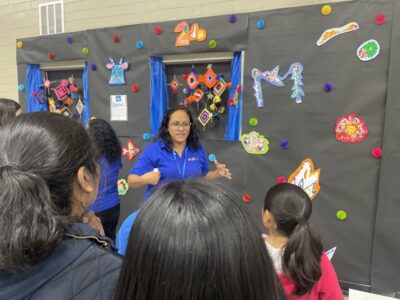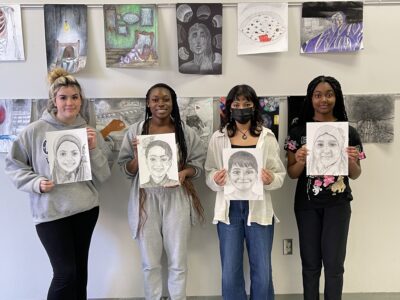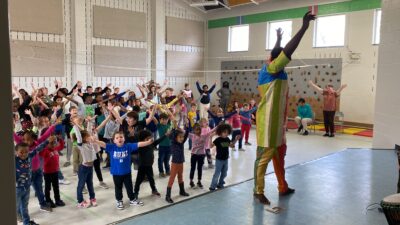Share this story
How many times have you sat in a professional development workshop or meeting and thought to yourself, “I do these things in my music education classroom all the time and always have!”
I’d venture to guess, the answer is a resounding “many times!” Truth be told, music educators have been doing all the things that are trendy and cutting edge in education all along. This has once again recently become apparent to me through an introduction to the North Carolina Department of Instruction’s new initiative Portrait of a Graduate.
This initiative “ensures that North Carolina students are well equipped for the broadest range of postsecondary opportunities, be it college, career, or military.” This portrait is a set of competency skills for a student’s future; and true to years prior, the music classroom is a living example of many of these ideals.
North Carolina identifies 7 areas in which these competencies are detailed. In a changing educational landscape, one in which accountability and validity are paramount for program security, there is a need to identify how these competencies live and breathe in a music classroom.
Using the competencies embedded in this new initiative, here are a few examples we all can use to speak to parents and administrators to continue to showcase what we have always known: that music education is a vital and authentic part of a well-rounded education- one that prepares students for all post-secondary opportunities.
Adaptability
One of the skills listed under this competency – the one that rings truest in a music classroom- is, “accept feedback, praise, setbacks, and criticism.” Our culture is in desperate need of this.
Teaching future generations to graciously accept criticism and learn from it to move forward seems more paramount than ever. A music rehearsal or an audition is by far the most comprehensive example of this.
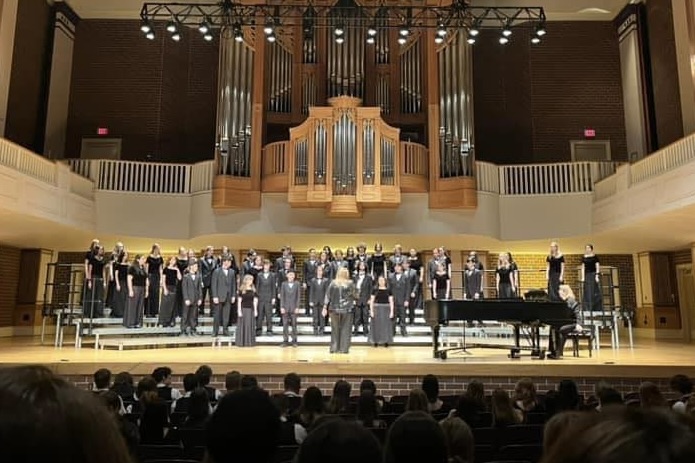

Each day, each moment, each rehearsal is another opportunity for a student to create these skills. We teach them to try and fail, but try again. Not everyone can win first place, but the growth that comes from that outcome teaches them to rebound from what some consider a setback. In fact, the Music Performance Assessment (MPA) through NCMEA is a perfect way to teach students how to accept feedback and criticism.
Collaboration
“Embrace a variety of roles in a group as a participant and a leader,” speaks whole heartedly to the core of a strong music education classroom. Whether it is through an official leadership position (ie. section leaders, drum major, etc.) or more subtle roles- leaders of a musical game or literacy activities, the music classroom is a hallmark of establishing leadership in students.
Additionally, teaching them the flexibility to shift from role to role creates a future workforce that employers want. But most importantly, music ensembles are a true melting pot of any school.
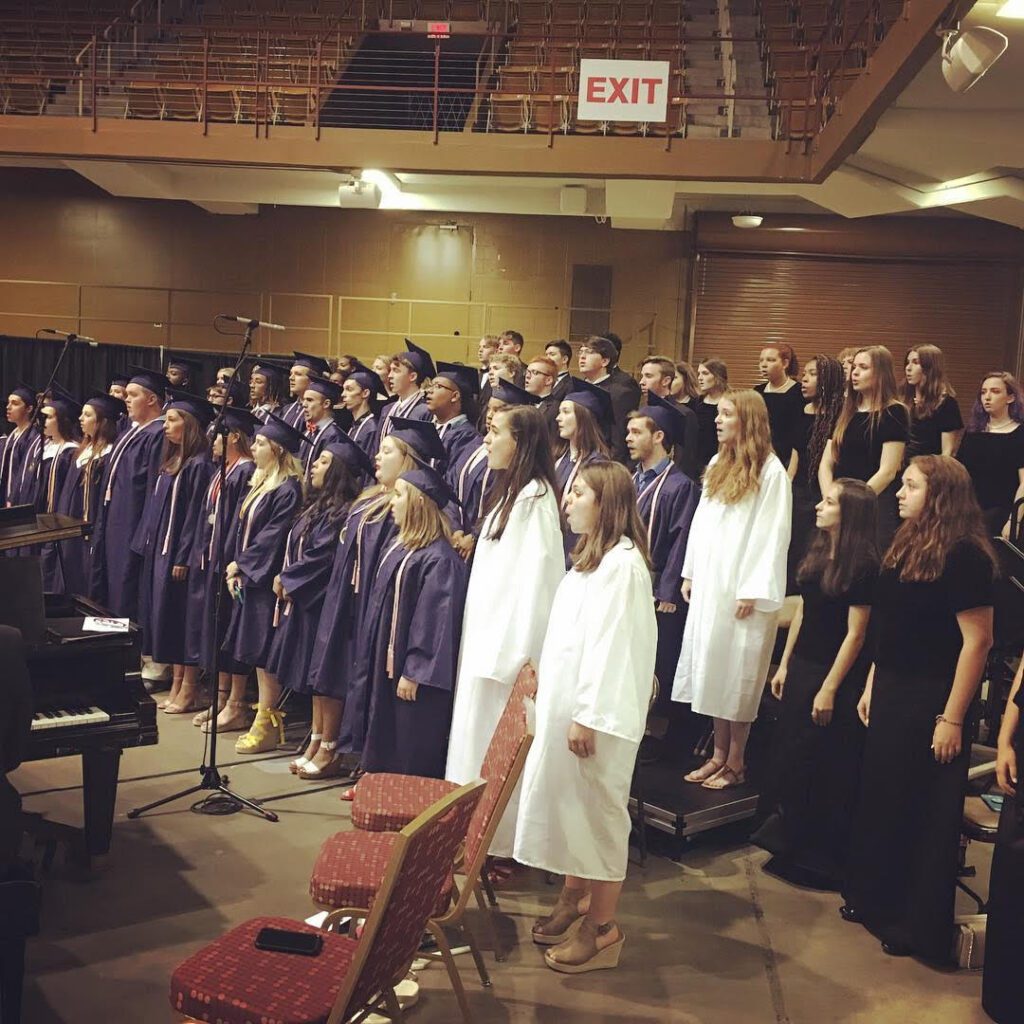

Unlike a testing scenario in other classrooms, the variety of backgrounds, skills, talents and experiences not only disappear in a performance as we work for a common goal, but may even make it stronger, more impactful!
Communication
How many times a week does a teacher (or parent for that matter) say “You hear me, but you aren’t listening.” Many would argue that the digital age has perpetuated the decline of communication skills among students.
Being a member of a performing ensemble does force students to learn to communicate better – both on a one on one level as well on a broader spectrum. “Craft communication for a range of purposes and audiences” is exactly what this speaks to.
It goes beyond the lyrics of a song- so that an audience can understand what you are singing about. Communication is not always verbal – just ask a marching band adjudicator looking to band members to communicate the show story.
Or a choir parent who may not understand Latin, but can ascertain the emotion the choir portrays to communicate the meaning of an acapella piece. All of these are vital to learning communication skills.
Critical Thinking
Many times in a rehearsal, we ask students questions like, “What measure did you miss?” and “In what phrase did you accidentally take a breath?” Answers from young musicians for questions like these are straightforward and while they are the basis of error detection, diving deeper is even more prevalent for music education.
The competency skill highlighted by North Carolina, “analyze, assess, and reconstruct personal thought processes,” is what this deeper dive looks like. Whether it be an introspective look at what a song means to each student, or critical assessment on a performance, we as music educators impart these skills as an intrinsic need in the life of a musician.
And as a whole, we as musicians know that the critical thinking skills needed to be a successful musician are of a higher order- more so than most other people realize. In a live performance, our students must rely on these critical skills in order to produce the music as we’ve rehearsed.
In a rehearsal, we can stop a dozen times, but in concert, the necessity of those skills are primarily in the minds of our performers. It’s not just about recalling knowledge, like taking an end of course test, it combines that recall with all other of these competencies simultaneously.
Learner’s Mindset
We often ask students to offer thoughts or opinions on choices we make musically, creating open dialogue on what affects each of these thoughts and opinions on our musical performances.
When we collaboratively discuss and choose, it opens the door for students to often think outside their comfort zone to come to a decision we all commit to for the greater good. While this is not always seen or written by the individual students, the evidence is in their performance.
More importantly they “embrace curiosity to experience new ideas, demonstrate growth, and persist through challenges.” Music educators are masters at teaching this competency skill.
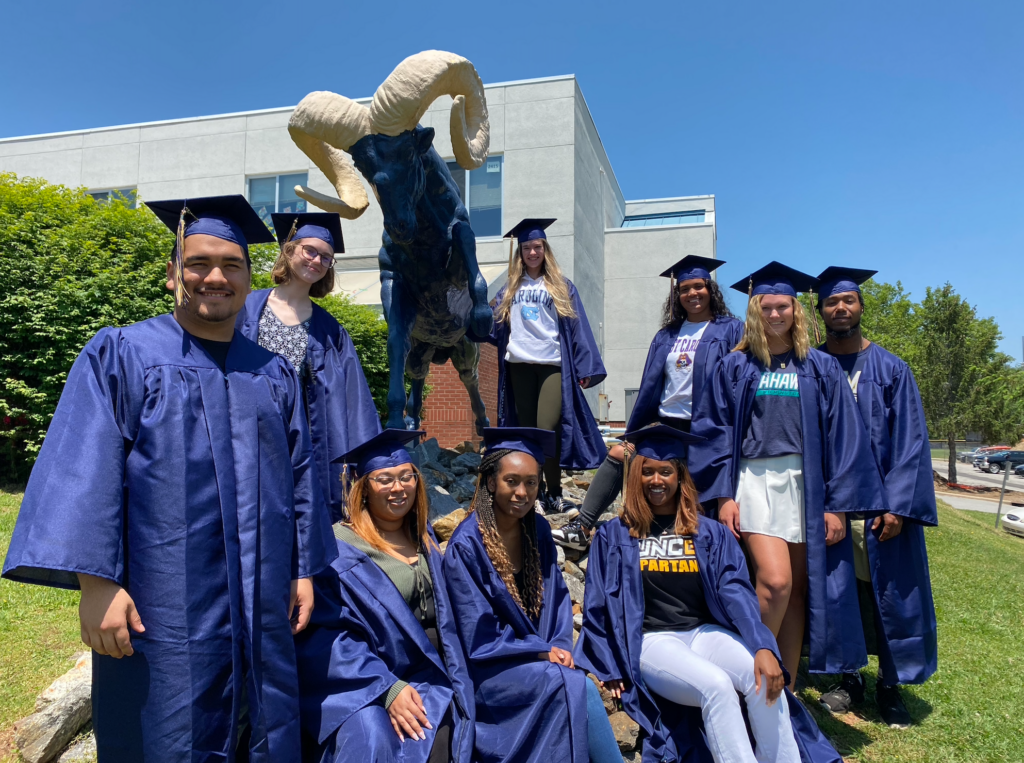

Learning music is hard. We should want students to want to learn through this mindset – to want them to feel the satisfaction of facing a difficult section or phrase with success for committing to trying new concepts to make a positive change.
Empathy
Of all of the competency skills included in this new initiative, empathy is the most inclusive part of a music classroom. Each day we work hard to “foster belonging and trust through mutual respect and dialogue.”
How many times has a former or current student said, ‘your class was my family.’ No doubt we’ve all heard it – many times. Learning to be an accepting and functioning member of any performing ensemble requires students to trust the people around them to create a safe learning environment and do their job each and every time, or success can not be achieved.
Music educators are tasked with fostering this in every teaching moment. While each of us may go about this in different ways, most often we can be leaders in our school in this regard.
Additionally, throughout history music has been created as a response to the world around us. In times of sorrow and joy music is written and performed. These moments help teach our students about empathy and respect in a world that needs more of it.
Personal Responsibility
Teaching students to show up to performances may be the most obvious and straightforward example of teaching personal responsibility. But there are so many levels of such responsibility, limitless, in fact. Each of the examples of “honor commitments” speaks straight to the heart of any music educator.
“Adhere to a set of core values that are evident in choices and actions” and “Earn trust and respect through honest, principled behaviors”- both of these are what makes the music classroom such a special place. It is only through trust, respect and honesty that we create moments of music making that last a lifetime.
Though Portrait of a Graduate is a new initiative put forth by North Carolina, it is another living, breathing example of all the ways we as music educators prepare students for post-secondary opportunities.
We have consistently through the years proven time and time again that we are the builders of well-rounded students- ready to take on the world. As we move forward as a state focused on these competencies, we can choose to be leaders to other educators in this endeavor, all the while, continuing to give students incredible opportunities to grow as musicians and humans.


